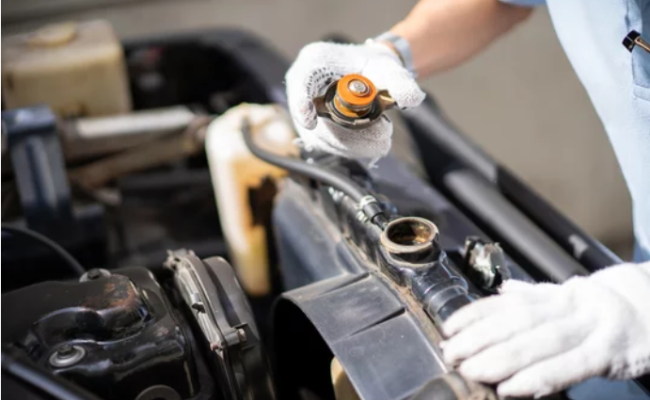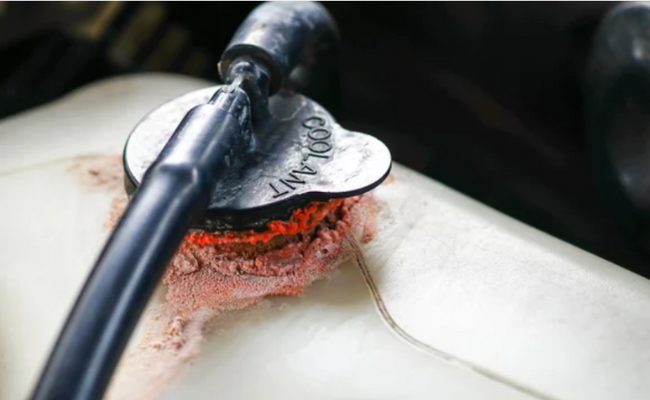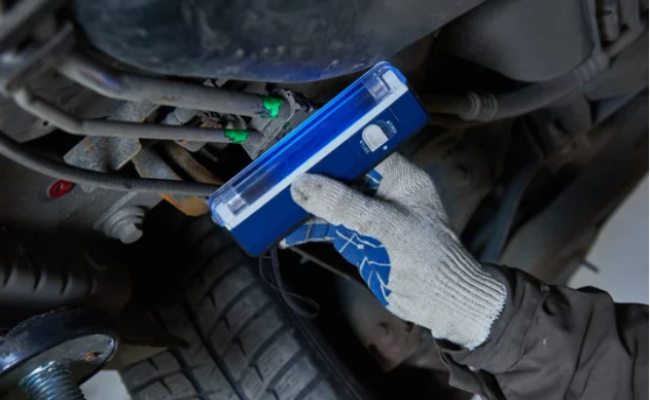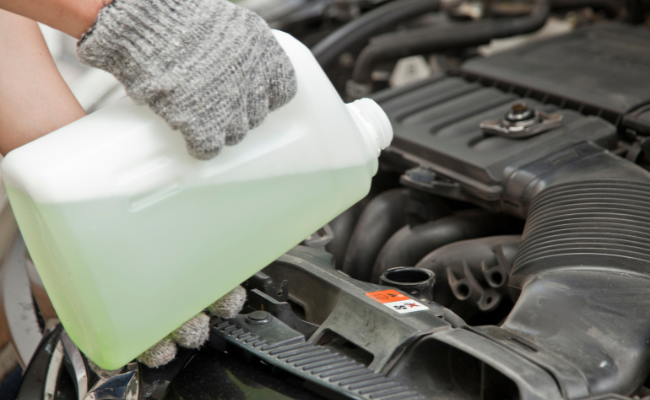5 Common Causes of Coolant Leaks
Though it might not seem to be an issue, coolant leaks can create a dangerous situation for your car engine. Your car engine could overheat without the right quantity of antifreeze.
Therefore you should regularly check your coolants because it’s a key factor to how well your engine will run, and this is critical for old cars, as newer models operate more efficiently. To know if your coolant is leaking, inspect the coolant level within the expansion tank and top it, then observe the level of the fluid reduce drastically.
You can guess where the leak is from once you are sure it’s a coolant leak. Coolant can start leaking for several reasons. Let’s discuss five common causes of coolant leaks.
Hole in Radiator

Your car’s engine parts always go through extreme temperatures and a lot of wear and tear, affecting your engine in several ways. One major cause of coolant leaks is corrosion around the radiator.
Debris or sediments could get inside tubes as they get older and brittle, and this may, in turn, cause leakage. Also, the sealing gasket between the radiator and the tank can wear out, leading to leakages.
Another cause of leakages can be the hoses connected to the radiator. After a while, the hoses are going to get brittle and hard. Therefore, they won’t seal properly. As a result, all the areas connected to the radiator, heater core, and water pump become weak and open to leaks.
Head Gasket is Blown
Your car’s head gasket plays an important role in the engine’s performance. Most times, it is hard to recognize when a head gasket blows. You can be on the road for several kilometers before noticing issues.
The head gasket encounters different temperature ranges and low and high pressure in the engine. It is located between the engine block and cylinder head, and when a leak is developed, it is called “blown.”
As this occurs, the gasket cannot separate the coolant and engine oil anymore, which is very hazardous and can result in engine failure. Also, this can cause coolant leakages outside the engine, resulting in a drop in coolant level. Therefore, your car loses its ability to drop the temperature when it is high.
The engine of your car performs in harsh conditions with high temperatures. If this temperature remains high for a stretched period, it can result in an overheated engine, causing the gasket head to blow.
The extra heat causes the engine block and cylinder head to expand past their limit, which can result in head gasket failures. Another cause of failure in the head gasket is detonation because of the damage it causes to the fire rings or armor, thus allowing pressure from the cylinder to leak.
Leaky Radiator Cap
Secure radiator caps will seal and maintain adequate pressure on the system. This is critical to ensuring that the water and coolant mix can move through the entire system and moderate the engine’s temperature as required.
Though the size of the radiator cap is small, its functions are critical. The pressure in the radiator is extremely high, and the cap is responsible for sealing it tightly, thus maintaining adequate pressure in the cooling system.
However, the spring might wear out, or the seal might deteriorate with time, leading to the escape of coolants. The pressure is reduced, and it is more difficult for the coolant to regulate the engine’s temperature and keep from overheating if the radiator cap is leaking or loose.
You can easily diagnose this issue by going through your car’s manual and checking the radiator cap to ensure it has adequate pressure. However, if you need professional services, you can take your car to the mechanic workshop to be properly checked.
Problem with Expansion Tank
The expansion tank is that plastic container found right beside the engine. Its function is to assist in coolant supply to the radiator. Usually, it is connected to the radiator using a rubber hose and receives or feeds coolant to and from the radiator as the engine’s temperature fluctuates.
As the engine gets older, exposure to temperature changes causes the plastic can and the parts associated with it to become weak, whether a crack from the container or leakage from the cap, which can cause coolant to escape. Also, it is possible for the hose that connects to the radiator to wear out, and this causes the connection to become loose, leading to leakages.
The Water Pump has Failed.
The water pump’s function is to ensure the coolant adequately circulates through the cooling system. Usually, it’s driven by a belt and can be found around the lower areas of the engine, near the drive belts.
The water pump connects to the radiator’s lower hose. However, the connection can sometimes become loose or corroded. Or there might be some external damages that could result in leakages. Whatever the cause, when issues in the water pump prevent ut from transporting coolant around the engine, the system will eventually overheat.
Leaks in the water pump tend to happen when the deal and gasket that connects the cooling system and water pump fail due to deterioration or wear and tear, resulting in a puddle below the engine and leakages. Ensure the problem with your water pump does not transform into coolant leakages. This problem becomes severe when the casing of the water pump starts to leak.
If ignored, the engine system will overheat because of the wrong flow of coolant, which can cause further damage to the block and head of the engine. Regularly check for coolant puddles below the engine. It is usually a red or green liquid. If you see this at any time, you visit a professional to check your water pump immediately.
How to Avoid a Coolant Leak before it Happens
One key method of preventing coolant leakages is maintaining a regular preventative schedule that includes constantly checking and changing the coolant in the radiator.
Old coolants in your engine system can become sour, turning acidic, and it can slowly eat away the aluminum in the radiator. Maintaining your engine regularly can also detect deteriorating and loose hoses or any other issue resulting in leakages in your radiator.
If you notice signs of coolant leakages, we recommend you visit a professional. It’s important to check your vehicle and locate and handle this issue. Great maintenance will help your car maintain a balanced temperature which is important in ensuring your car engine system does not overheat or, even worse, break down. The most common places coolant leakages are from, including the water pump, radiator, hoses, freeze plugs, heater core, and gaskets.
Lastly, if the footwell carpet is wet or there is a smell of coolant when you switch on the heater, there is likely a leakage in the heater matrix. Having this replaced can be quite expensive and hectic. With professional assistance, you can easily resolve these issues.
Coolant leaks can occur anywhere within the cooling system. In most cases, you can easily spot coolant leaks. It’s easy to see the coolant dripping, seeping, bubbling, or spraying from the components that hold or transport it.
Overheating in the engine is usually the primary system of trouble. However, always check the coolant indicator lamp to know when the coolant is low. If you suspect coolant leakages in your car, open the hood and inspect the engine visually. Check for signs of liquid leakage from the engine, hoses, or radiator.
Conclusion
If your car’s cooling system is causing you some concern, don’t hesitate. Get an expert mechanic to diagnose and fix any underlying issue. This will save you from major engine repairs in the future.




